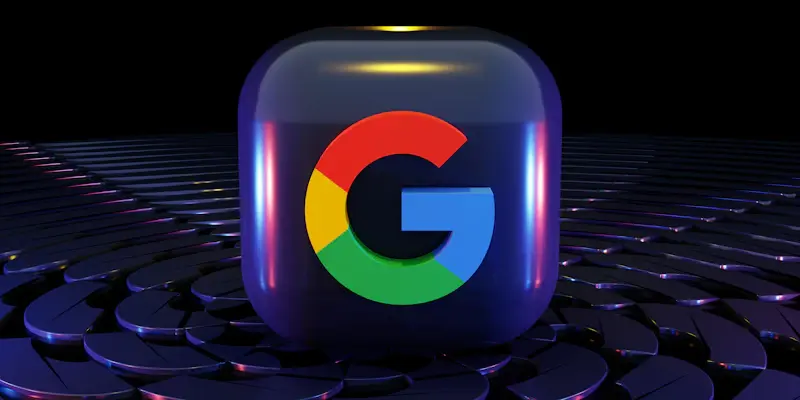Google has taken a significant leap in the AI landscape with the announcement of Gemini 2.0 Flash Thinking, a multimodal reasoning model designed to handle complex problems with enhanced speed and transparency. This new model builds on Google’s previous Gemini 2.0 Flash, enhancing its reasoning capabilities and user interface. With its innovative features, Gemini 2.0 Flash Thinking is set to revolutionize the way artificial intelligence addresses multifaceted challenges, setting a new benchmark in the industry.
Advancements in Reasoning Capabilities
Enhanced Token and Response Handling
A notable feature of Gemini 2.0 Flash Thinking is its support for 32,000 tokens of input and the ability to produce up to 8,000 tokens per response. Positioned as Google’s most clever model, it promises superior multimodal understanding, reasoning, and coding capabilities. Users can now expect more comprehensive and detailed responses to their queries, enabling more productive and efficient decision-making processes. Google emphasizes the model’s “Thinking Mode,” providing more robust reasoning responses than its predecessor. Yet, key details about its training process, architecture, licensing, and costs remain undisclosed, although it currently shows zero cost per token in Google AI Studio.
The 32,000-token input support significantly enhances the model’s ability to process large volumes of data swiftly, making it suitable for businesses and researchers requiring extensive data analysis. Furthermore, the model’s capacity to generate up to 8,000 tokens per response ensures that users receive thorough and elaborative answers, reducing the need for follow-up queries. This capability becomes particularly advantageous in complex problem-solving scenarios where detailed explanations and comprehensive data interpretation are crucial.
Transparency in Reasoning
Unique to Gemini 2.0 is its transparency in reasoning. Unlike competitor models from OpenAI, Gemini 2.0 allows users to see the step-by-step reasoning through a dropdown menu, addressing concerns about AI operating as a “black box.” This feature makes the model more accessible and builds trust by providing clear insight into how conclusions are reached. Google’s focus on transparency is a strategic move to foster greater user confidence and reliance on AI-driven solutions. This transparency is pivotal in critical applications such as healthcare, finance, and legal sectors, where understanding the rationale behind AI decisions is imperative.
Early tests reveal Gemini 2.0 Flash Thinking’s ability to handle tricky questions seamlessly, such as counting specific characters in words or comparing decimal numbers by breaking down the problem into smaller, more manageable steps. Independent analysis by LM Arena underscores its top performance across all LLM categories. This comprehensive performance evaluation demonstrates the model’s reliability and efficiency in various tasks, from simple computations to intricate problem-solving scenarios, positioning it as a versatile tool in the AI domain.
Multimodal Capabilities and Applications
Superior Image Processing
Gemini 2.0 also excels in image processing, designed to natively handle image uploads and analysis from the start. While OpenAI’s o1 family initially launched as a text-only model, it later included image and file upload capabilities. However, both models currently return text-only outputs. Notably, Gemini 2.0 does not yet support grounding with Google Search or integration with other Google apps and third-party tools. This limitation, however, does not detract from its robust image processing capabilities, which can significantly aid industries relying on visual data analysis.
The model’s ability to process and analyze images is set to redefine workflows in sectors like healthcare, where image-based diagnostics play a crucial role. It can potentially automate and enhance the accuracy of medical image analysis, reducing the burden on healthcare professionals. Additionally, in fields like advertising and retail, Gemini 2.0’s image processing prowess can streamline operations, from automated tagging and categorization to advanced visual content recommendations, thereby improving efficiency and customer satisfaction.
Integration Across Data Formats
Google has made a monumental advancement in artificial intelligence with the release of Gemini 2.0 Flash Thinking. This is not just an incremental improvement but a multimodal reasoning model engineered to solve complex problems with unprecedented speed and clarity. Building upon the foundation of Google’s earlier Gemini 2.0 Flash, this version significantly enhances both its reasoning abilities and its user interface. The introduction of Gemini 2.0 Flash Thinking signifies a transformative leap in AI technology, promising to handle multifaceted challenges more efficiently. This development sets a new industry standard and showcases Google’s commitment to pushing the boundaries of what artificial intelligence can achieve. With its advanced features, Gemini 2.0 Flash Thinking is poised to redefine the way AI is utilized for solving intricate issues, offering enhanced problem-solving capabilities and a more sophisticated user experience. This breakthrough underscores Google’s pivotal role in shaping the future of AI, making it a landmark moment for the technology sector.

